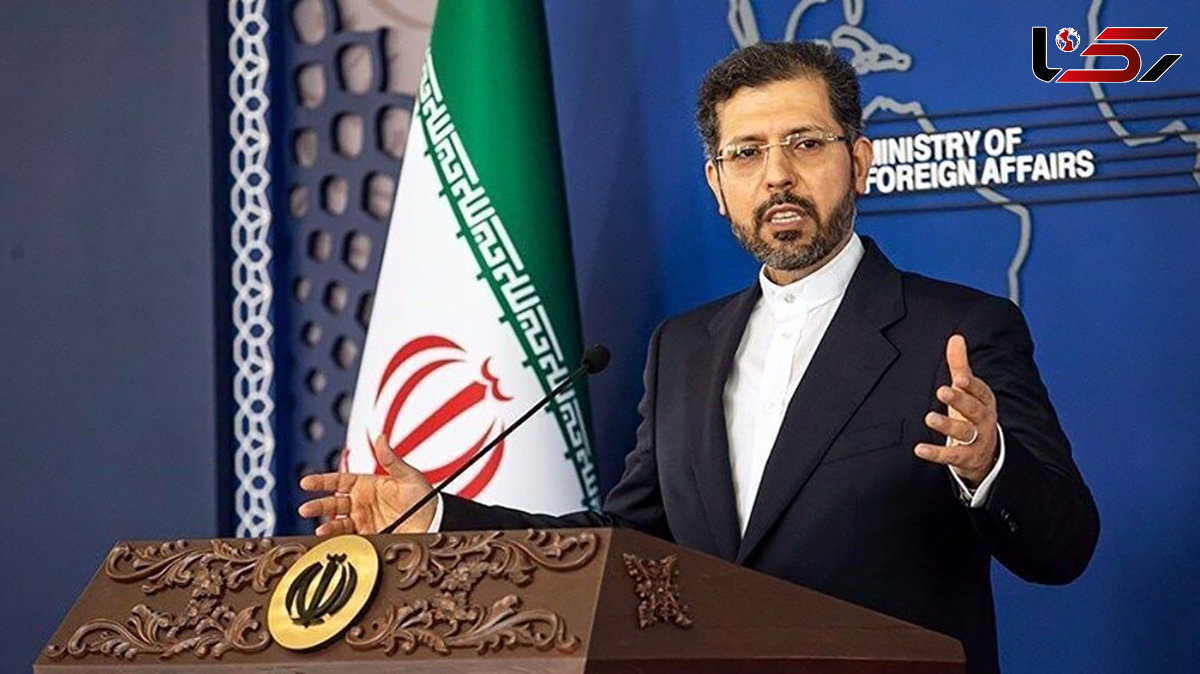Khatibzadeh: Europe’s “Snapback” Move Wastes Its Last Card; Iran’s Finger on the Trigger
Rokna Political Desk: Iran’s Deputy Foreign Minister stated that activating the “snapback” mechanism would “waste Europe’s last card,” and warned that any future negotiations would, from Iran’s perspective, be “armed talks,” due to Tehran’s lack of trust in Washington.

Saeed Khatibzadeh, Iran’s Deputy Foreign Minister and Head of the Political and International Studies Center, warned in an interview with Frankfurter Allgemeine that pressure on Tehran is a mistake and could push Iran into difficult decisions. He emphasized that after the recent military attack, trust in nuclear negotiations is extremely limited, and any return to talks would only be possible if negotiations are result-oriented and hostilities are halted during the discussions.
Khatibzadeh criticized European efforts to activate the UN “snapback” mechanism, saying Europeans have no right to do so and that such an action would waste their “last card.” According to him, Europe has lost its role as a mediator, and applying further pressure on Iran will only increase tensions.
He reiterated Iran’s right to uranium enrichment under the Non-Proliferation Treaty, warning that if the U.S. insists on “zero enrichment,” Iran will respond with strong resistance. While Tehran is not seeking to be an exception to international law, it is willing to negotiate over the level and details of enrichment. He stressed that any future negotiations from Iran’s perspective would be “armed talks,” as Tehran does not trust Washington.
Khatibzadeh also condemned German Chancellor Friedrich Merz’s statements supporting Israel, asserting that such remarks do not represent the German people. He added that Iran receives U.S. messages indirectly, but the recent attack has changed all calculations, and a simple return to the negotiating table is no longer possible.
On German Tourists Detained in Iran:
When asked about two German cyclists currently detained in Iran, Khatibzadeh said one is accused of cooperating with foreign intelligence services, though not with German agencies. He stressed that consular access is being granted and highlighted the broader use of foreigners by intelligence services, including Israeli, against Iran. He called much of Israel’s activity “information warfare.”
Regarding the second detainee, Lenart Montrelo, 19, of German-French nationality, accused of an unspecified crime, Khatibzadeh stated that Iran has always adhered to the Vienna Convention and the embassy has access to him.
On Europe’s Snapback Plans:
When asked why Germany, France, and the UK have not received a response from Tehran regarding their plan to activate the snapback mechanism to reinstate UN sanctions, Khatibzadeh said Europe has no right to implement this provision from the 2015 JCPOA. He pointed out that China and Russia have also declared this clearly. He argued that Europeans have increasingly lost relevance in international matters since Trump’s presidency and that trying to use the snapback as leverage makes them appear even less significant. Applying pressure is a mistake, as it could push Iran toward difficult decisions.
Asked what decisions he meant, Khatibzadeh replied, “Many options are on the table.”
On Nuclear Threats:
When asked if Iran’s threat to leave the Non-Proliferation Treaty could encourage another Israeli attack, Khatibzadeh said U.S. and Israeli strikes targeted declared sites under constant monitoring, showing that the concern was not Iran’s peaceful nuclear activity or treaty membership. He accused the attack of aiming to shape the global order and Middle East according to Western interests and stated that the attacks were planned while indirect messages were still being exchanged with U.S. officials.
Regarding future snapback actions, Khatibzadeh called them a continuation of aggression. He criticized Europe for telling Iran to negotiate with the U.S. after waiting months and following the military attack, stating that Europe should instead provide concrete proposals to both Washington and Tehran.
When asked about current messages from Washington, Khatibzadeh said Iran receives them indirectly. He noted that the recent attack has changed the situation, and a simple return to negotiations is impossible, especially without security guarantees.
Security and Negotiation Conditions:
Iran demands that any negotiations be result-oriented and that hostilities stop during talks. Khatibzadeh reiterated Iran’s legal right to uranium enrichment, warning that if the U.S. insists on “zero enrichment,” Iran will resist strongly. However, Iran is open to discussions ensuring it will never produce nuclear weapons. He called any renewed negotiations “armed talks,” with all options on the table due to lack of trust in the U.S.
On a proposal suggesting Iran could retain the right to enrichment but suspend its use temporarily, Khatibzadeh said that while the right must remain, the level, implementation, and details are open for negotiation.
On Direct Communication with the U.S.:
He confirmed that the direct channel between Iran’s Foreign Minister and U.S. Special Representative Steve Witkoff has existed when necessary and could still be used.
On German Chancellor’s Remarks:
Regarding Chancellor Merz’s statement that Israel conducts “dirty work” in Iran, Khatibzadeh rejected it, saying it does not represent the German people. He accused the Chancellor of being misled by Israel and supporting violations of international law, including attacks on Iran’s nuclear facilities. He asserted that no German would accept labeling the killing of innocent Iranians as “dirty work” performed on Germany’s behalf.
Send Comments